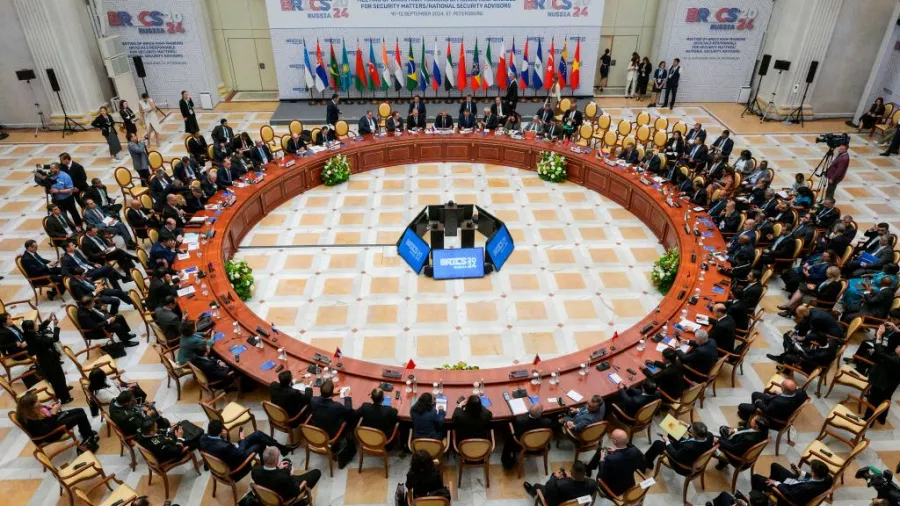China Urges BRICS Alliance to Strengthen Unity Amid Global Tensions
3 min read

China’s Foreign Minister Wang Yi has called for enhanced unity and cooperation within the BRICS alliance, urging member nations to remain cohesive in the face of “political forces with Cold War mentalities.” Wang’s remarks came during the 14th meeting of BRICS top security officials, held in St. Petersburg.
In his address, Wang emphasized the need for member countries to respect each other’s core interests and address major concerns while safeguarding sovereignty, security, and development priorities. His comments underscore the importance of solidarity within the alliance amidst rising criticisms from various quarters.
The BRICS group, which was originally established in 2006 by Brazil, Russia, India, and China, welcomed South Africa into its fold in 2010. Over recent years, the alliance has expanded to include Iran, Egypt, Ethiopia, and the United Arab Emirates. Saudi Arabia has expressed interest in joining, and Azerbaijan, Turkey, and Malaysia have formally applied for membership.
The upcoming BRICS summit, scheduled to take place next month in Kazan, is expected to see significant participation from key figures such as Russian President Vladimir Putin and Chinese President Xi Jinping. This summit aims to further strengthen the alliance’s strategic cooperation and address pressing global issues.
In a parallel development, the Secretary of Iran’s National Security Council, Ali Akbar Ahmadian, criticized the United States for allegedly expanding terrorism and undermining the sovereignty of other nations. Speaking at the same security conference, Ahmadian accused the U.S. and its allies of misusing technology and science in ways that threaten international peace and stability.
These remarks follow recent tensions between the U.S. and Iran. The U.S. has accused Iran of supplying short-range ballistic missiles to Russia, intended for use against Ukraine. This accusation has led to new sanctions imposed by the U.S. on both Moscow and Tehran. Iran’s Foreign Ministry, however, has denied the allegations of missile supply, with the semi-official ISNA news agency reporting that Tehran has not provided such weapons.
As the BRICS alliance grows and diversifies, its ability to maintain internal unity while addressing external pressures remains a critical challenge. The expansion of the alliance and the inclusion of new member states reflect its evolving role on the global stage, but also introduce new dynamics and complexities into its operations.
China’s call for unity within the BRICS framework highlights the ongoing efforts to consolidate the alliance’s position amidst global geopolitical tensions. The organization’s ability to navigate these challenges will likely be a focal point of discussion at the upcoming summit in Kazan.
The BRICS alliance’s broadening membership and its strategic engagements with other nations underscore its increasing influence in global affairs. As it continues to expand, the group faces the dual challenge of managing internal cohesion while responding to external pressures and geopolitical shifts.
The next BRICS summit is anticipated to address these issues and chart a course for the future direction of the alliance, with a focus on reinforcing its strategic objectives and enhancing its collective impact on the global stage.